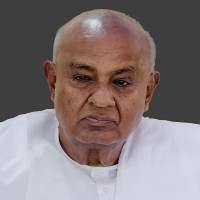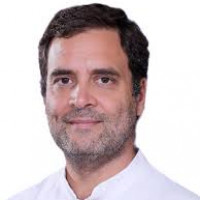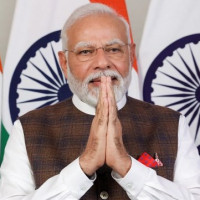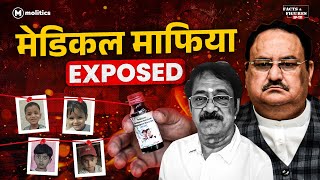
Karnataka elections 2018: The spin around the Muslim vote
The heat and dust raised by Congress president Rahul Gandhi’s characterisation of the Janata Dal(S) as the ‘B’ team of the BJP has refused to die down. Prime Minister Narendra Modi, at a meeting on the final leg of the campaign, chose to sing praises of JD(S) supremo H.D. Deve Gowda only to deride the party — that has a tie-up with the All India Majlis-e-Ittehad-ul Muslimeen (AIMIM) led by Assaduddin Owaisi — two days later.
Political observers say leaders hurl such statements back and forth with an eye on votes. The Congress, which has accused the JD(S) of having a “secret pact” with the BJP, is trying to ensure that Muslim votes do not drift to the JD(S). The BJP is hoping to consolidate non-Muslim votes — especially Vokkaliga votes in the Old Mysuru region.
Muslims constitute 12.91% of Karnataka’s population and are electorally significant in at least 20-odd urban seats. Informal estimates by political parties indicate that Muslims are capable of changing the fortunes of candidates in at least 90 seats across the State.
The debate around the Muslim vote and accusations of “appeasement” began long before the elections, when the Congress government in 2015 announced the official observation of Tipu Jayanthi to mark the 19th century Mysuru king’s birth anniversary. This led to violent protests and even a death. It continues to resonate through election rhetoric.
At an election meeting on Sunday, Mr. Modi asked why the Congress government was keen on observing the Sultan’s birthday and not that of Onake Obavva, a woman who is said to have fought the forces of Tipu’s father, Hyder Ali. Sangh Parivar outfits have constantly called Tipu “anti-Kannadiga and intolerant”.
This apart, every scheme aimed at the Muslim minority — for instance, the Shaadi Bhagya scheme to provide ₹50,000 each for the marriage of Muslim women — has seen raucous opposition. The BJP manifesto has promised a Vivaha Mangala scheme to counter Shaadi Bhagya.
Political observers say leaders hurl such statements back and forth with an eye on votes. The Congress, which has accused the JD(S) of having a “secret pact” with the BJP, is trying to ensure that Muslim votes do not drift to the JD(S). The BJP is hoping to consolidate non-Muslim votes — especially Vokkaliga votes in the Old Mysuru region.
Muslims constitute 12.91% of Karnataka’s population and are electorally significant in at least 20-odd urban seats. Informal estimates by political parties indicate that Muslims are capable of changing the fortunes of candidates in at least 90 seats across the State.
The debate around the Muslim vote and accusations of “appeasement” began long before the elections, when the Congress government in 2015 announced the official observation of Tipu Jayanthi to mark the 19th century Mysuru king’s birth anniversary. This led to violent protests and even a death. It continues to resonate through election rhetoric.
At an election meeting on Sunday, Mr. Modi asked why the Congress government was keen on observing the Sultan’s birthday and not that of Onake Obavva, a woman who is said to have fought the forces of Tipu’s father, Hyder Ali. Sangh Parivar outfits have constantly called Tipu “anti-Kannadiga and intolerant”.
This apart, every scheme aimed at the Muslim minority — for instance, the Shaadi Bhagya scheme to provide ₹50,000 each for the marriage of Muslim women — has seen raucous opposition. The BJP manifesto has promised a Vivaha Mangala scheme to counter Shaadi Bhagya.



































































